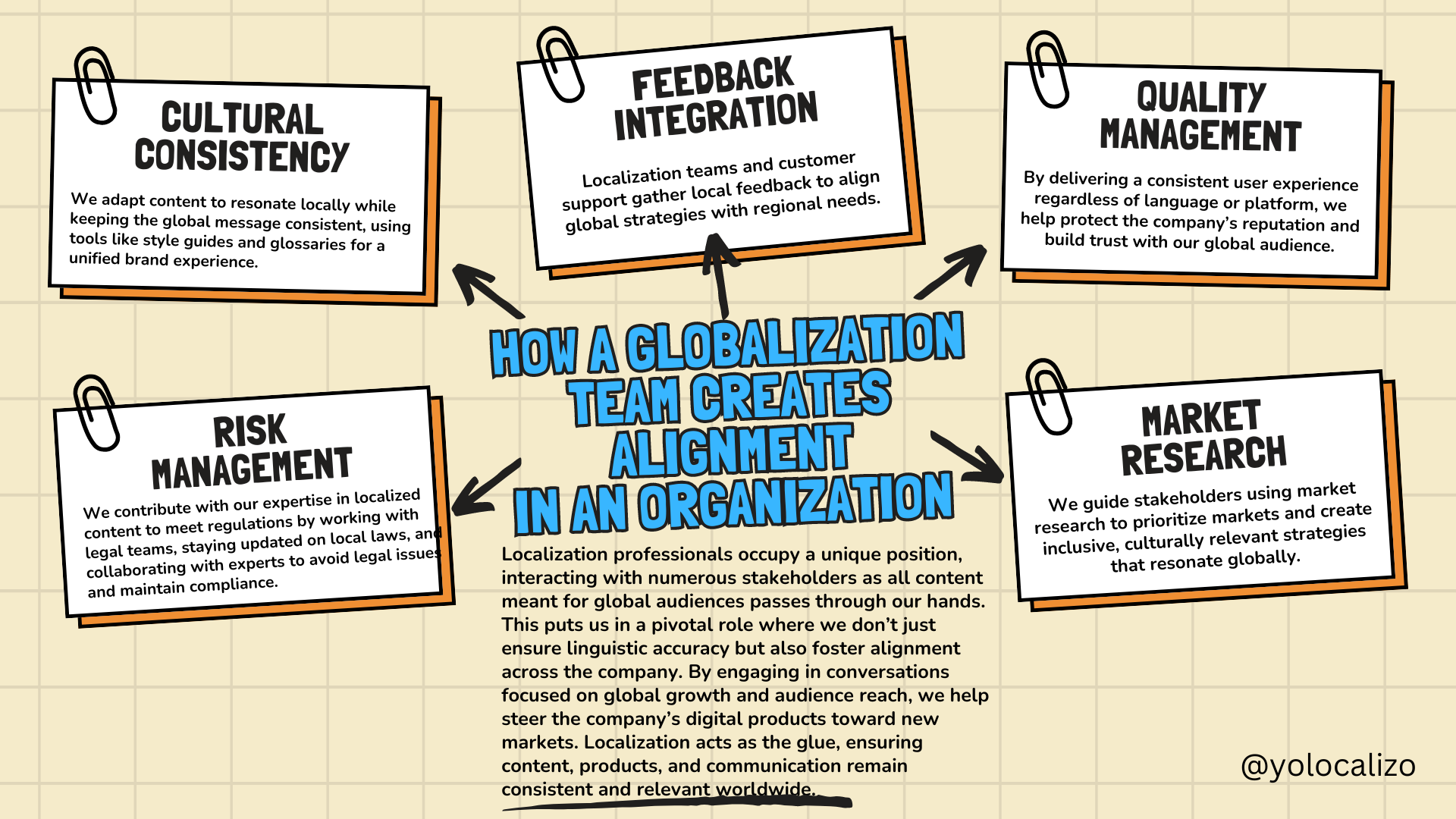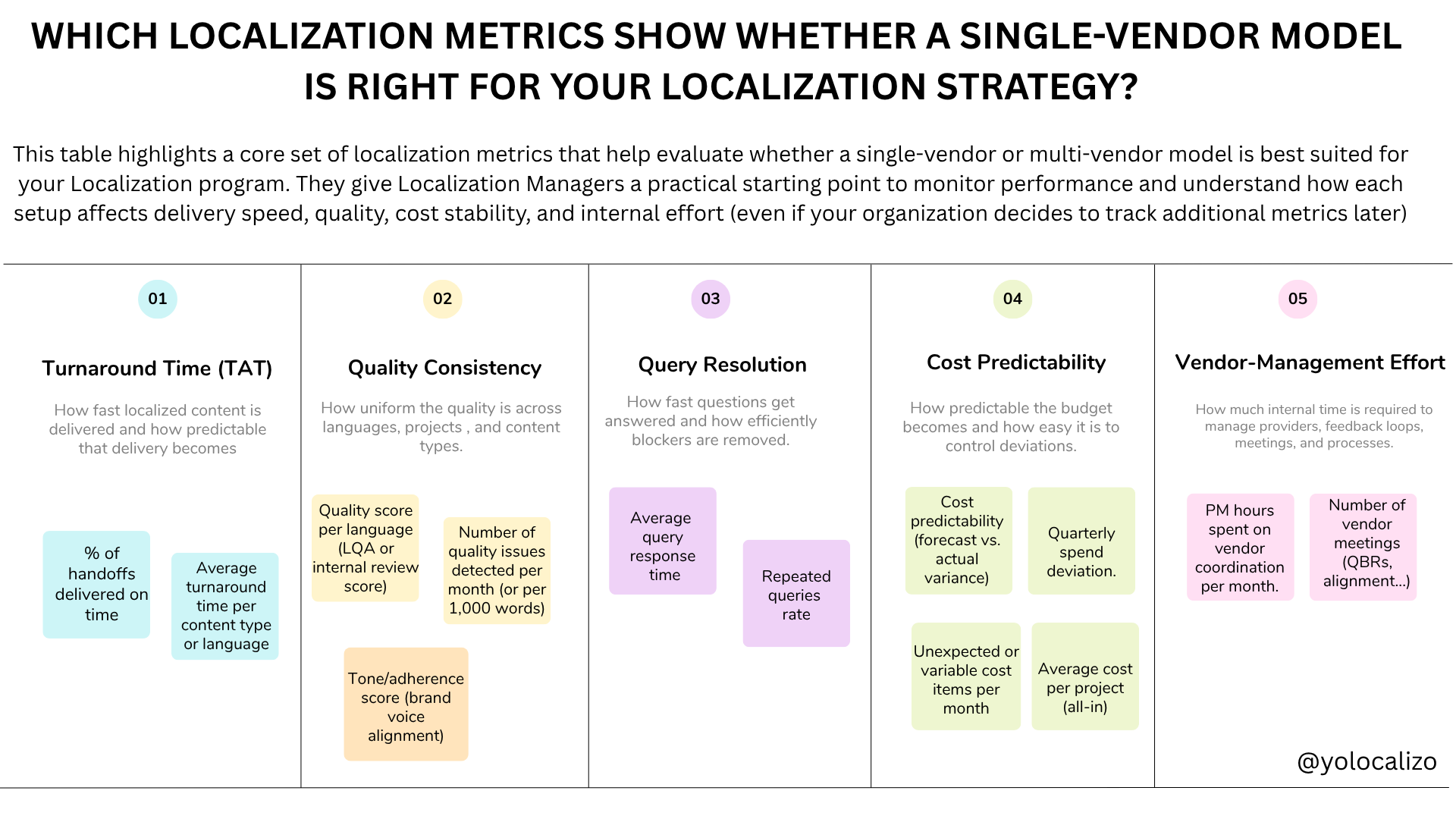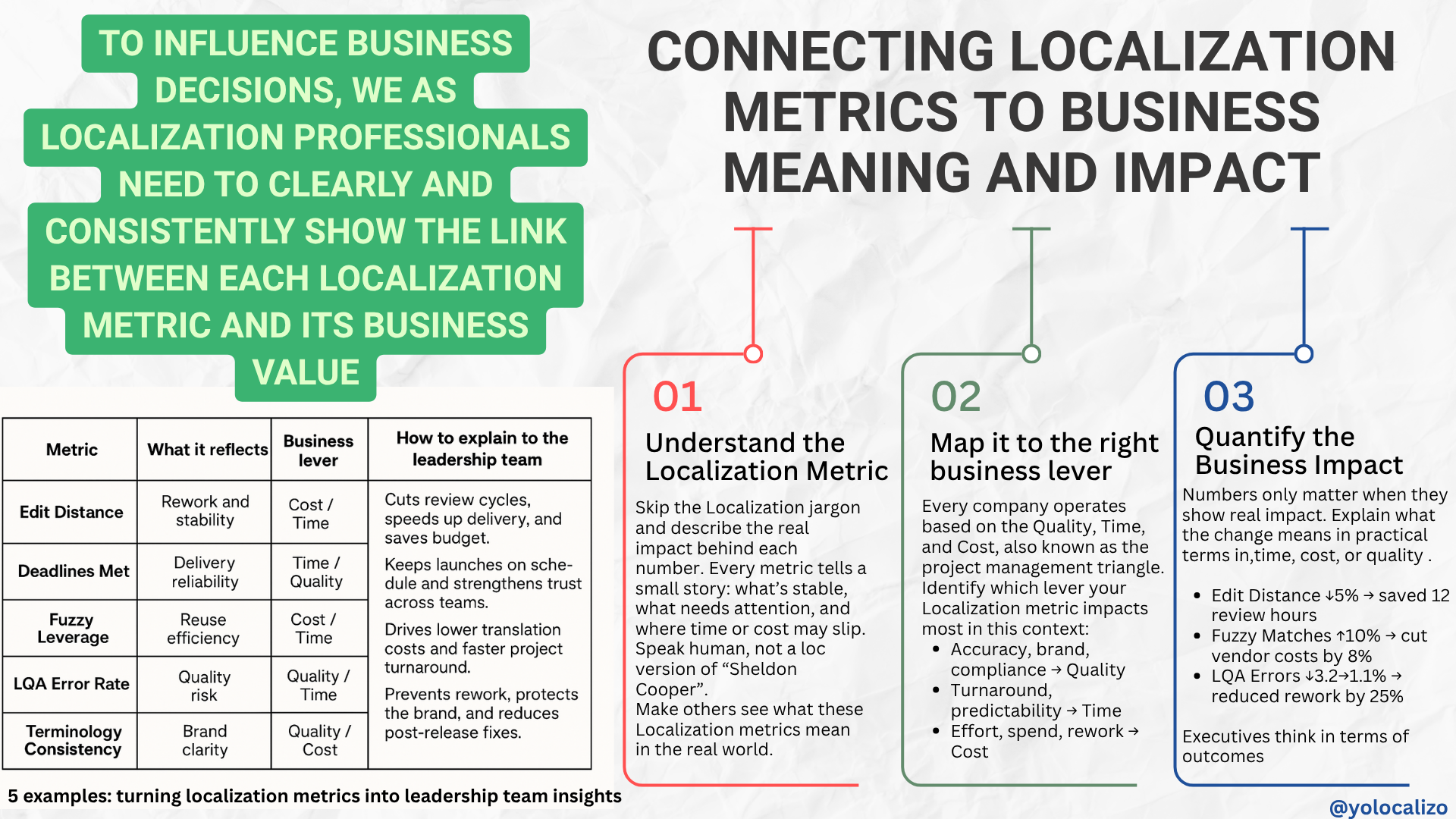Developing our "executive presence" in the Localization industry, is it doable?
Although the Localization industry is fascinating, there is a part that professionals working here might have certain disadvantages if we compare it with other sectors.
One of those disadvantages is the career plan, it is not very clear how to progress and advance in the industry. At first, evolution makes sense and is quite logical, many of us who started in this industry started as Testers, or Translators or Linguistic Specialists; from here you can go to test lead, language lead ... then, we can evolve into Project managers, Portfolio Managers, Localization Managers ... but from there, things might get complicated to continue developing as a professional.
What skills should we develop as a Localization professional if we want to go further?
In this post, I reflect on some of those skills that may help us to have a level up in our career!
David is a colleague who started like me, being a Linguistic Tester. Years ago we worked together in the same company. Then we followed different paths; he moved to the world of data. Although we do not see each other as often as we would like, we still have a good relationship. David currently works as User Engagement Director and the other day while we had a few beers he told me that in his sector there are still possibilities to continue developing.
He told me about different courses he was doing to strengthen his skills and his career plan .. and that he had discovered that the key was to be reasonably good in several skills. Not to be very good in one, but to focus on several things that we do well and improve them.
I agree with him, and in reality, this idea is nothing new. Focusing on our strengths is hardly a new idea. Forty-four years ago Peter Drucker explained brilliantly in The Effective Executive, but the problem I've always seen is that being better in something we are already good is tricky because the progression is slow. Being better at something we are weak is much easier, we study we practice and we improve. But doing more of what we already do well yields only incremental improvement. To get appreciably better at it, we have to work on complementary skills. This is very aligned with what my friend David said, and actually, this is also what Scott Adams explained in his book "How to fail at almost everything and still win big". I like that book a lot, I read it a couple of years ago and I loved it.
Scott is well-known worldwide for his character Dilbert. And he explains in this way the idea of eing better in several disciplines.
"When it comes to skills, quantity often beats quality. In California, for example, having one common occupational skill plus fluency in Spanish puts you at the head of the line for many types of jobs. If you're a skilled public speaker (good but not great) and you know your way around to PowerPoint presentation, you have a good chance of running your organization.
To put the success formula into its simple form: Good + Good + Good + ... ..> Excellent "
And I do really love how he explains the combination of good but not being great in his own career
"Recapping my skill set: I have poor art skills, mediocre business skills, good but not great writing talent, and an early knowledge of the Internet and I have a good but great sense of humor. soup None of my skills are world-class, but when my mediocre skills are combined, they become a powerful market force "
I love his self-deprecating sense of humor!
So the question is what skills can we develop professionals working in the localization industry that when we put them together makes us better and can move us forward?
Well, the list is long, and it depends a lot on our interests, I believe that any professional in our industry who wants to continue advancing will have more opportunities to achieve it if we work our skills related to:
• Public Speaking
• Psychology
• Business writing
• Cultural Intelligence
• Design slides
• Persuasion
• Datasheets analytics
Each person might have a different list for sure, it is how it should be, but I have found those complementary skills a good combination to the already existing skills we have people working in the Globalization industry. Skills such as: speak a second language (or even a third), being a good conversationalist, good with grammar, reasonably good with technology and so on.
And if those skills were not enough I leave below a list that I have adapted from an article I read years ago in the HBR in which they talked about how to increase our "executive presence".
I love this concept of developing our "executive presence"; fortunately to increase my executive presence I do not have to wear a suit as I prefer my hoodie and my sneakers 🙂
Developing our "executive presence" is not about wearing a suit or a hoodie, it's all about combining skills.
To increase our "executive presence" as Localizers we have to work to combine skills as the I summarized in this poster. Click/tap the link below to download it!!!
@yolocalizo
Skills to develop to increase our "executive presence" in the Globalization/Localization industry
And, how to use this list to increase our "executive presence"?
An idea might be below list
In my case when I did this exercise I decided to work on my communication skills, which I did not score particularly high but were high enough that raising them a little could make a significant difference and my plan to get better at that was as follow:
- Join a local chapter at Toastmasters
- Offer myself to give a presentation every time I have an opportunity (at work or conferences or any other event)
- Record video myself speaking (check out this very good advice from Connor Neill about how powerful is to develop this habit)
- Track the feedback I received in the evaluation of my own speeches at my Toastmasters club so I know what I'm doing well and what I can do better
I do not know where my journey in the Globalization industry will take me, I do not know if my executive presence will improve, but as Scott Adams says
"If you find yourself in a state of continual failure in your personal or business life, you might be blaming it on fate or karma or animal spirits or some other form of magic when the answer is simple math. There's usually a pattern, but it might be subtle. Do not stop looking just because you did not see the pattern in the first seven years. The future is thoroughly unpredictable when it comes to your profession and your personal life ten years out. The best way to increase your odds of success- in a way that might look like luck to others- is to systematically become good,
but not amazing, at the types of skills that work well together "
Thanks for these words Scott that push me and encourage me to keep improving.
Have a great week everyone and I wish success to all of us in the Localization industry increasing our "executive presence"; which hopefully will lead to a level up in our career !!!
@yolocalizo















This feels like a pivotal moment. Localization teams are being asked to support more markets, move faster, use AI responsibly, and show impact, not just output. Expectations are higher than ever, but many teams are still trained mainly for execution. We are strong at delivering localization work, yet we often struggle to move from output to outcome and to clearly explain the impact of what we do.